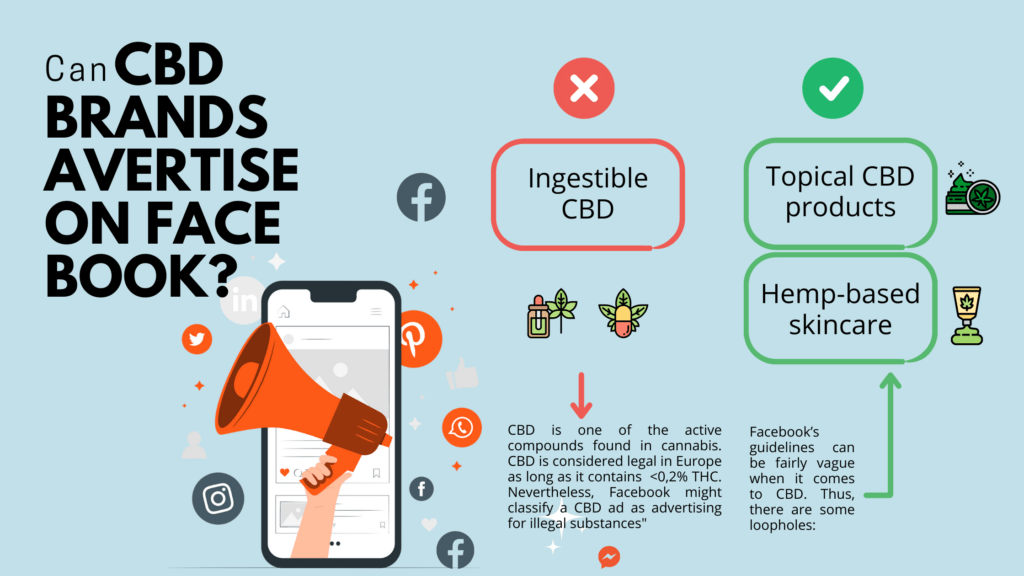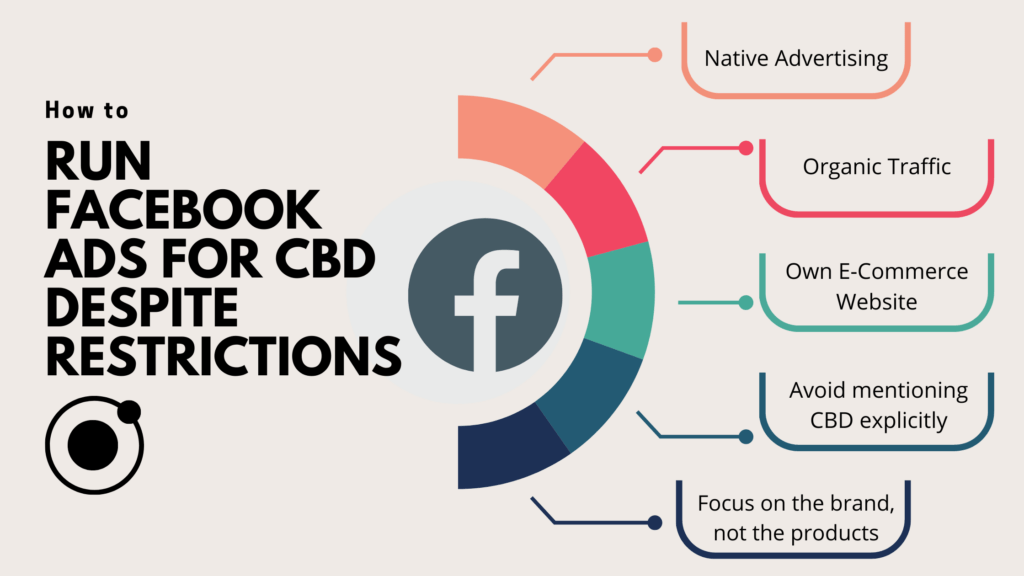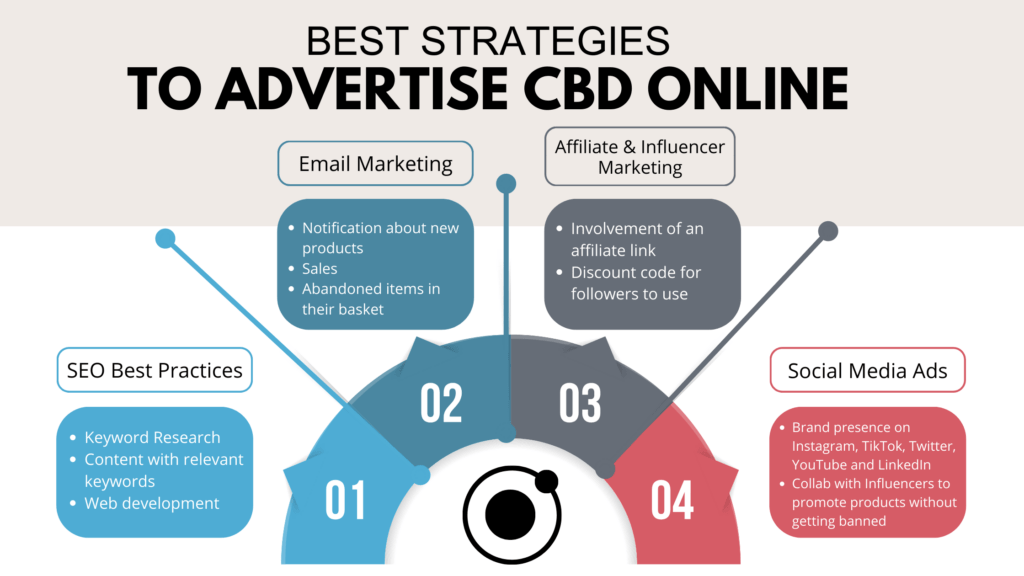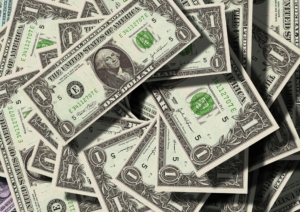Zusammenfassung
Wie kann Ihr Unternehmen den Spagat zwischen den von Facebook akzeptierten und den nicht akzeptierten CBD-Inhalten schaffen? Es gibt eine Reihe von Möglichkeiten. Trotz der strengen Marketingbeschränkungen für Cannabidiol gibt es Möglichkeiten für Ihre Marke, auf der Social-Media-Plattform Aufmerksamkeit zu erregen, ohne PPC-Anzeigen zu verwenden.
Einführung
Wenn es um den Verkauf von CBD auf Facebook geht, gibt es einen richtigen und einen falschen Weg, die Dinge zu tun. Leider können die Richtlinien von Facebook ziemlich vage sein, wenn es um CBD geht. Obwohl es sich um eine schnell wachsende Branche handelt, hat CBD das Stigma, das mit illegalem (Freizeit-)Cannabis verbunden ist, noch nicht richtig abschütteln können.
Tatsächlich hat CBD selbst andere potenzielle Wirkungen als die Pflanze, aus der es gewonnen wird. Dies hat dazu geführt, dass immer mehr Länder CBD-Öl und andere Nahrungsergänzungsmittel legalisieren - und einen immer größer werdenden Zielmarkt von treuen Verbrauchern, die wissen wollen, ob der Wirkstoff ihr Wohlbefinden positiv beeinflussen und zu ihrem Lebensstil passen kann.
Obwohl CBD in der Wellness-Branche sehr beliebt ist, gibt es für Unternehmer immer noch viele Hürden zu überwinden, wenn es um die Vermarktung ihrer CBD-Produkte geht[1]. Während viele andere Unternehmen ihre Nische in der Wellnessbranche finden und ihre Produkte effizient über soziale Medien vermarkten können, verbieten viele Plattformen die bezahlte Werbung für CBD.
Heute werden wir uns eingehend mit den CBD-Bestimmungen von Facebook befassen - erlaubt Facebook die Vermarktung von Cannabidiol auf seiner Plattform? Welche Regeln sollten Unternehmer auf dem Weg zu einem vollwertigen Marketingplan für soziale Medien beachten? Wir werden auch einen kurzen Blick auf einige alternative Social-Media-Plattformen und andere Möglichkeiten werfen, eine CBD-Marke zu vermarkten, die sich auf lange Sicht vielleicht mehr lohnen als Facebook-Werbung.
Was sagt das Gesetz über CBD?
Lassen Sie uns eines klarstellen: CBD ist legal, solange die Produkte bestimmte Standards erfüllen (die sich von Land zu Land und von Staat zu Staat unterscheiden können). Im Vereinigten Königreich und in weiten Teilen der EU dürfen CBD-Produkte nicht mehr als 1 mg THC (die berauschende Verbindung in Cannabis) pro Produkt enthalten. CBD-Produkte müssen außerdem aus der Hanfpflanze (Cannabis Sativa) gewonnen werden. Die besten CBD-Produkte werden mit einem Analysezertifikat (COA) geliefert, das genau bestätigt, welche Pflanzenstoffe (auch Cannabinoide genannt) im Produkt enthalten sind.
Auch bei den CBD-Werbegesetzen sind die Regeln ziemlich undurchsichtig. Generell gilt, dass Marken keine ausgefallenen gesundheitsbezogenen Aussagen über ihre Produkte machen dürfen. Es darf nicht behauptet werden, dass CBD schwere Krankheiten oder Symptome verschiedener Leiden heilt.
Im Vereinigten Königreich wird CBD im Allgemeinen als Nahrungsergänzungsmittel für das Wohlbefinden und die allgemeine Gesundheit betrachtet und muss außerhalb eines medizinischen Kontextes vermarktet werden.

Facebook-Werberichtlinie
Wenn die meisten Marken von Facebook-Werbung sprechen, ist damit die relativ unkomplizierte Praxis gemeint, eine Werbekampagne mit gesponserten Beiträgen auf der Facebook-Website zu erstellen, die als Teil von gezielten Beiträgen erscheinen, wenn potenzielle Verbraucher durch ihren Feed scrollen.
Dies gilt jedoch nicht für CBD, für das (größtenteils) keine traditionelle Werbung auf der Plattform gemacht werden darf. Unternehmen können immer noch über CBD posten, aber bezahlte Werbung ist nicht erlaubt. Vor kurzem hat die Plattform beschlossen, ihre Richtlinien für bestimmte Hanfprodukte zu lockern, worauf wir in Kürze eingehen werden. Für Unternehmen, die sich auf nicht-thematische Produkte spezialisiert haben, lohnt es sich jedoch, bestimmte Werbealternativen in Betracht zu ziehen.
Was sagt Facebook also über CBD im Besonderen? Nichts. Die Wahrheit ist, dass die Werberichtlinien von Facebook relativ vage sind und nur "illegale Produkte" erwähnen (was Nahrungsergänzungsmittel für Erwachsene wie CBD einschließen kann).
Dazu gehört auch, dass bezahlte Anzeigen keine Hinweise auf oder Werbung für illegale oder irreführende Produkte enthalten dürfen - vor allem, wenn es um Gesundheit und Wellness geht. Da CBD aus Cannabis gewonnen wird (eine Pflanze, die in den USA, wo Facebook seinen Sitz hat, auf Bundesebene noch nicht legal ist), ist es auf der Plattform nicht erlaubt, dafür zu werben.
Auch wenn dies auf den ersten Blick leicht zu umgehen ist - schließlich ist CBD nicht dasselbe wie Cannabis - verbieten die internen Richtlinien von Facebook im Wesentlichen, dass Hanfprodukte in ihren gesponserten Beiträgen zu sehen sind. Da die Plattform ihren Sitz in den Vereinigten Staaten hat, gelten ihre Regeln in Bezug auf illegale Substanzen auch für Unternehmen, die nicht in den USA registriert sind, was bedeutet, dass auch europäische CBD-Unternehmen die Regeln ihrer Plattform einhalten müssen.

Natürlich ist das nicht das Ende der Fahnenstange für CBD-Werbung auf Facebook[2]. Da sich die rechtliche Situation rund um Cannabidiol weiter entwickelt, ist es wahrscheinlich, dass Facebook seine Haltung gegenüber bezahlter Werbung ebenfalls lockern wird.
Auch wenn Facebook seine spezifischen Richtlinien für CBD noch nicht veröffentlicht hat, ist es wichtig, sich darüber zu informieren, wie die Plattform CBD-Marken in der Vergangenheit behandelt hat. Wenn Sie versehentlich gegen die Regeln verstoßen, kann es schnell passieren, dass Ihr Unternehmen nicht mehr posten darf oder ganz von der Plattform verbannt wird. Daher kann ein falscher Beitrag auf Facebook eine Verschwendung wertvoller Marketingzeit und -budgets für Ihre Marke sein.
Eine vielversprechende Zukunft
Ab 2019 hat Facebook seinen Einfluss auf die Werbung für Hanfprodukte gelockert und erlaubt die Werbung für aktuelle Hanfprodukte auf seiner Plattform - natürlich unter strengen Auflagen.
Dank dieser Änderung können Werbetreibende potenzielle Kunden auf Landing Pages mit hanfbasierten Hautpflegeprodukten und möglicherweise CBD leiten. Da Facebook jedoch Anzeigen mit einnehmbarem CBD verbietet, sollten die Zielseiten für topische Hanfprodukte auch keine Erwähnung der Substanz enthalten.
Das kann natürlich ein ziemliches Problem für CBD-Marken sein, deren Websites ihre Produkte wirkungsvoll präsentieren! Leider ist dies ein Problem, das entweder vermieden werden muss (indem man gesponserte Facebook-Anzeigen gar nicht erst verwendet) oder direkt angegangen werden muss (was für reine Hautpflegemarken am einfachsten sein dürfte).
Die Tatsache, dass Facebook überhaupt beginnt, seine Vorschriften zu lockern, kann jedoch als gutes Zeichen für die Zukunft gewertet werden. Es wird weithin spekuliert, dass diese Richtlinien auf allen Social-Media-Plattformen weiter gelockert werden, was die breitere Akzeptanz von CBD auf der ganzen Welt widerspiegelt.
Wie können Sie CBD auf Facebook vermarkten?
Natürlich gibt es, wie bei den meisten Regeln, Möglichkeiten, Facebooks CBD-Verbot zu umgehen - vor allem in Anbetracht der Tatsache, dass sie ihre Türen langsam für die Verbindung öffnen. Es besteht zwar immer das Risiko, dass CBD-Marken bestraft werden, aber hier sind ein paar Möglichkeiten, wie Sie sicherstellen können, dass Ihre Facebook-Marketingbemühungen belohnt werden:
- Wenn Sie CBD in Ihrer Facebook-Werbung erwähnen, dürfen Sie den Traffic nur über eine Handlungsaufforderung "Mehr erfahren" auf eine Bildungsseite leiten. Doch damit nicht genug: Sie müssen auch sicherstellen, dass Ihre Bildungsseite den Anforderungen entspricht (Facebook scannt auch dies) - NUOPTIMA kann Ihnen dabei helfen.
- Das bedeutet, dass Sie keinen High Intent Conversion Traffic von Facebook auf Ihre Website leiten können, wenn Sie Ihr Produkt als CBD bezeichnen!
- Wenn Sie Ihr Produkt stattdessen "Hanf" nennen, dürfen Sie Besucher auf eine Seite mit Einkaufsmöglichkeiten leiten. Es ist ein schmaler Grat, auf dem Sie wandeln müssen, wenn Sie Besucher für Ingestibles und Topicals anziehen. Auch dabei kann Ihnen NUOPTIMA helfen.
- Es gibt auch andere clevere Möglichkeiten, die E-Mail-Adressen von Nutzern zu gewinnen, die sich für CBD interessieren, ohne dass der Verkehr zunächst auf kaufbare Seiten gelenkt wird, z. B. durch Quizfragen und gut gestaltete Landing Pages.
Beachten Sie, dass das Genehmigungsverfahren von Facebook für bezahlte Anzeigen weitgehend automatisiert ist. Die Bots werden also jeden Aspekt Ihrer Anzeige gründlich prüfen, von den Bildern über den Text bis hin zur Landing Page (einschließlich des Inhalts Ihrer Website), um zu entscheiden, ob die Anzeige gemäß den internen Richtlinien von Facebook genehmigt werden sollte oder nicht.

Wir haben jedoch festgestellt, dass bei der Werbung für CBD oder Hanf die Wahrscheinlichkeit höher ist, dass Ihre Anzeige einen manuellen Genehmigungsprozess durchläuft. Wenn Sie zu viele nicht konforme Anzeigen schalten, riskieren Sie, dass Ihr Konto gesperrt wird. In diesem Fall ist es sehr vorteilhaft, mit einer Agentur zusammenzuarbeiten. Sie profitieren von deren Erfahrung und haben Zugang zu erfahrenen Facebook-Vertretern, die Anzeigen vorab genehmigen können.
Es ist wichtig zu wissen, dass, selbst wenn Ihre Anzeige das Wort CBD nicht enthält, die Landing Page, auf die sie auf Ihrer Website weiterleitet, die Substanz ebenfalls nicht erwähnen darf. Dies kann ein ziemliches Problem für Marken darstellen, die "CBD" in ihrem Namen und ihrer allgemeinen Produktidentität verwenden - und dieses Problem besteht größtenteils immer noch. Einige Marken erstellen eine neue Website, die ausschließlich dem Verkauf ihrer aktuellen Hanfprodukte dient, und einigen Marken ist es gelungen, mit Facebook zu verhandeln, um dieses Verbot zu umgehen. Andere hingegen ziehen es vor, auf bezahlte Facebook-Werbung ganz zu verzichten und stattdessen eine Alternative zu nutzen (auf die wir gleich noch eingehen werden).
Kann man auf Facebook für CBD werben?
Ja! Facebook ist eine der beliebtesten Werbeplattformen im Internet. Der Schlüssel zum Erfolg liegt darin, zu verstehen, wie man die richtigen Besucher auf die richtige Landing Page lenkt.
Die besten Strategien für CBD-Werbung auf Facebook
Wenn man bedenkt, wie unglaublich geheimnisvoll Facebook mit seinen Richtlinien umgeht, ist es keine Überraschung, dass viele CBD-Marken unbedingt herausfinden wollen, wie sie die Plattform im Rahmen ihrer Marketingstrategie richtig nutzen können. Es gibt mehrere Möglichkeiten, dies zu tun, ohne offenkundig von der Plattform verbannt zu werden, z. B. durch die gezielte Verwendung von Schlüsselwörtern wie "Hanföl", anstatt CBD in Ihren Marketinginhalten explizit zu erwähnen.

Native Werbung
Native Ads sind einfach solche, die wie durchschnittliche Beiträge auf der Plattform erscheinen: Es sind keine gesponserten Beiträge, aber sie werden typischerweise mit der Absicht gemacht, ein Produkt zu verkaufen. Da es sich nicht um bezahlte Werbung handelt, ist es in der Regel in Ordnung, CBD in dieser Art von Beiträgen zu erwähnen.
Als Faustregel gilt, dass diese Art von Beiträgen nicht übermäßig "verkaufsorientiert" sind und sich stattdessen auf einen potenziellen Nutzen von CBD oder eine Möglichkeit, das Präparat in den Alltag einzubauen, konzentrieren. Achten Sie darauf, dass Sie bei all Ihren Inhalten die allgemeinen CBD-Vermarktungsgesetze einhalten und beispielsweise keine medizinischen Behauptungen aufstellen.
Achten Sie darauf, wertvolle Inhalte für Ihre Kunden zu erstellen, denn Native Ads führen nicht immer zu Conversions, aber sie können zu einer erhöhten Wahrnehmung von Autorität und Vertrauen in Ihre Marke führen. Dies wiederum kann langfristig zu mehr Leads und Konversionen führen.
Schaffen Sie Vertrauen, indem Sie die Verbraucher über die Bedeutung von Labortests durch Dritte aufklären und darüber, was Ihre CBD-Produkte für sie tun können.
Während der übliche Ratschlag lautet, ein neues Facebook-Konto zu erstellen, das von Ihrer Marke getrennt ist, um nicht-native Anzeigen zu schalten, ist dies für CBD-Unternehmer, die ihre Markenbekanntheit über Facebook-Marketing steigern möchten, möglicherweise nicht ratsam.
Geduldig sein und organischen Traffic aufbauen
Die meisten Geschäftsinhaber - insbesondere in der CBD-Branche - sind mit dem Konzept der Suchmaschinenoptimierung (SEO) vertraut. Viele wissen jedoch nicht, dass sich SEO von Plattform zu Plattform unterscheidet - Google, Amazon und Facebook haben alle unterschiedliche Algorithmen. Daher müssen Inhalte auf verschiedene Weise erstellt werden, um in den Suchergebnissen weit oben zu erscheinen.
Das bedeutet, dass bei Facebook-Marketing und CBD bestimmten Faktoren mehr Aufmerksamkeit gewidmet werden muss als anderen - die Zielkeywords können sich beispielsweise von denen auf der Website Ihrer Marke unterscheiden.
Es ist wichtig, beim Aufbau von organischem Traffic auf Ihrer Facebook-Seite geduldig zu sein - viele Marken machen den Fehler, die Richtlinien der Plattform zu ignorieren, um schnell CBD-bezogenen Traffic zu erhalten, obwohl dies in Wirklichkeit zu einem dauerhaften Ausschluss Ihrer Marke von Facebook führen kann - was sich auf lange Sicht natürlich nicht lohnt!
Erstellen Sie eine separate E-Commerce-Website, um Ihre CBD-Präparate zu präsentieren
Da CBD und Hanf auf der Landing Page, auf die Ihre Anzeigen weiterleiten, nicht erwähnt werden dürfen (was für die meisten Marken, die Wert auf Transparenz legen, ein Problem darstellt), erstellen viele im Rahmen ihrer Facebook-Marketingstrategie eine Landing Page, die von ihrer Website getrennt ist (zu der die Nutzer jedoch weitergeleitet werden können).

Auf diese Weise können Sie weiterhin bezahlte Anzeigen auf Facebook schalten und potenzielle Kunden auf Ihre eigentliche Website leiten - oder den gesamten Verkehr von Facebook auf eine sekundäre, themenbezogene Website leiten. Auf diese Weise können Sie den Kunden zwar nicht Ihr gesamtes Angebot an nicht themenbezogenen Produkten vorstellen, aber die Konversionsrate Ihrer Kampagne dürfte sich dennoch erhöhen.
Dies kann zwar immer noch dazu führen, dass Ihre Seite markiert und Ihre Anzeige abgelehnt wird, aber solange Sie CBD oder Hanf auf der Seite nicht erwähnt haben, wird dies wahrscheinlich wieder rückgängig gemacht, wenn Sie bereit sind, den Berufungsprozess zu durchlaufen.
Eine andere Möglichkeit besteht darin, eine konforme Seite auf Ihrer Website zu erstellen und sie nach der Genehmigung zu bearbeiten. Da dies jedoch Auswirkungen auf Ihre allgemeine Suchmaschinenoptimierung haben kann (und zu Maßnahmen von Facebook führen kann, wenn Sie entdeckt werden), ist dies möglicherweise riskanter als es wert ist.
Vermeiden Sie die explizite Erwähnung von CBD
Zwar sind nicht gesponserte Beiträge zum Thema CBD nicht gänzlich verboten, aber es besteht immer noch das Risiko, dass die Beiträge Ihres Unternehmens mit einem "Schattenverbot" belegt werden (ein Phänomen, bei dem sich eine Social-Media-Plattform inoffiziell weigert, Ihre Inhalte in den News Feeds Ihrer Follower anzuzeigen).
Wie bei den bezahlten Werbeanzeigen gibt es auch bei Facebook ein automatisiertes Prüfverfahren für den Großteil der Inhalte. Mithilfe von Bots, die jeden Beitrag auf der Plattform "lesen", können Beiträge, in denen ein Tabuthema wie CBD ausdrücklich erwähnt wird, unterdrückt werden. Ebenso sollten alle Zielseiten, auf die Ihre Beiträge verlinken, CBD, Hanf oder Cannabis nicht erwähnen.
Als Alternative verwenden viele CBD-Marken Begriffe wie "pflanzenbasierte Wellness" und "organische, natürliche Ergänzungsmittel", um die Zensur von Facebook zu umgehen. Es kann sich sogar lohnen, eine Facebook-Werbeagentur zu beauftragen, die sich auf dem CBD-Markt bewährt hat, einfach um zu vermeiden, dass Sie Ihre Website oder Produktseiten zu sehr an die Plattform anpassen müssen.
Konzentrieren Sie sich auf Ihre Marke, nicht auf Ihre Produkte
Auch wenn es nicht die beste Strategie zu sein scheint, in Werbeanzeigen nicht über Ihre Produkte zu sprechen, kann es sich lohnen, Ihre Kampagne einfach mehr auf die Markenbekanntheit auszurichten, um auf der guten Seite von Facebook zu bleiben.
Das kann bedeuten, dass Sie potenzielle Kunden auf eine Seite auf Ihrer Website leiten, auf der CBD nicht erwähnt wird und die sich stattdessen auf Markenwerte und Wellness konzentriert (mit einigen Links zu Seiten, die Ihre eigentlichen Produkte behandeln). Sie können sogar bezahlte Werbekampagnen einsetzen, um mehr Besucher auf Ihren Blog als auf Ihre Produkte zu lenken.
Natürlich ist es nicht immer wahrscheinlich, dass potenzielle Kunden auf diese Weise Ihr gesamtes Angebot an CBD-Produkten kennenlernen. Dennoch kann eine solche Strategie langfristig zu Umsätzen führen und zweifellos den Bekanntheitsgrad der Marke insgesamt erhöhen.
Wenn Ihre Website optimiert ist, können Sie potenziellen Kunden die Möglichkeit geben, sich für E-Mail-Benachrichtigungen und andere Marketingmaterialien anzumelden, in denen Ihre Marke CBD-Produkte offener als über Facebook-Anzeigen diskutieren kann.
Facebook-Werberichtlinien ab 2021
Zwar gibt es (natürlich) keine Garantie dafür, dass die CBD-Werberichtlinien von Facebook[3] in absehbarer Zeit ändern wird, ist man sich einig, dass sich ihre Einstellung im Verhältnis zur Rechtslage in den Vereinigten Staaten, im Vereinigten Königreich und im Rest der Welt weiter ändern wird.
Da sich das Stigma gegen CBD weiter in Akzeptanz verwandelt, ist es wahrscheinlich, dass viele der beliebtesten digitalen Werbeplattformen im Internet (wie Facebook und Google Ads) diesem Beispiel folgen werden.
Andere Möglichkeiten, online für CBD zu werben
Glücklicherweise gibt es bis zur Änderung der aktuellen Richtlinien viele andere Möglichkeiten, Ihre CBD-Marke online zu vermarkten. Facebook sollte niemals Ihre einzige Werbeoption sein!
Optimieren Sie Ihre Website mit den besten SEO-Praktiken
Jeder Unternehmer weiß, wie wichtig eine gute Online-Präsenz ist - und das bedeutet, dass viele auch ihre Website mithilfe von SEO optimieren wollen. Im Wesentlichen umfasst SEO komplexe Fähigkeiten wie Keyword-RechercheErstellung von Inhalten und Webentwicklung, um die Platzierung einer Website auf den Ergebnisseiten der Suchmaschinen (SERPs) zu verbessern.
Indem Sie sicherstellen, dass Ihre Website am besten positioniert ist, um Kundenfragen zu bestimmten Themen zu beantworten, können Sie organisch höher ranken als andere Marken in Ihrer Nische. SEO wird im Allgemeinen als eine der besten Methoden des unbezahlten Marketings angesehen - was auch bedeutet, dass viele konkurrierende CBD-Marken dies als einen wichtigen Teil ihrer Marketingstrategie nutzen werden.
Obwohl dies die Herausforderungen eines zunehmend übersättigten Marktes erhöhen kann, gibt es viele Möglichkeiten, wie Ihre Marke effektiv mit der Konkurrenz konkurrieren kann - und diese übertrifft. Eine Möglichkeit ist die Einstellung von Spezialisten SEO-Experten die in der CBD-Branche erfahren sind.

E-Mail-Marketing
Wie bereits erwähnt, ist eine gute Website für jedes Unternehmen von entscheidender Bedeutung - insbesondere in der CBD-Branche, wo SEO ein wichtiger Bestandteil des Marketings ist. Eine Sache, die eine Website erheblich verbessern kann, ist die Möglichkeit für Kunden, sich in Ihre E-Mail-Liste oder Ihren Newsletter einzutragen - dies kann bedeuten, dass sie über neue Produkte, Verkäufe, Artikel, die sie vergessen haben und in ihrem Warenkorb liegen gelassen haben, und mehr informiert werden.
Durch die Schließung einer möglichen Kommunikationslücke zwischen Ihnen und Ihren potenziellen Kunden kann E-Mail-Marketing äußerst effektiv sein - und zumeist kostenlos.
Affiliate- und Influencer-Marketing
Es gibt zwei ähnliche (aber unterschiedliche) Arten des Marketings über Affiliates und Influencer. Bei beiden handelt es sich um eine Partnerschaft zwischen Ihrer Marke und einer Person mit einer großen Fangemeinde in den sozialen Medien und der Einbindung eines Affiliate-Links irgendwo in deren Inhalt.
Affiliate-Marketing findet in einem größeren Rahmen statt, während Influencer-Marketing es Ihrer Marke ermöglicht, eine spezifischere (und oft loyalere) Nische anzusprechen. Sie können solchen Partnern einen einzigartigen Link zu Ihrem Produkt oder einen Rabattcode zur Verfügung stellen, den ihre Follower nutzen können. Auf diese Weise kann Ihr Unternehmen deren beträchtliche Fangemeinde nutzen, um sowohl die Markenbekanntheit als auch die Zahl der Kunden zu erhöhen.
Stellen Sie sicher, dass Sie alle Influencer, Micro-Influencer oder Affiliates, mit denen Sie zusammenarbeiten möchten, gründlich recherchieren. Ihr Online-Publikum sollte Ihrem Zielmarkt einigermaßen ähnlich sein.
Vermarkten Sie Ihre CBD-Marke in den sozialen Medien
Das Verbot von Facebook, bezahlte Werbung für CBD zu schalten, gilt zwar auch für andere soziale Medien wie Instagram (das zu Facebook gehört), Twitter und Tiktok, aber eine Markenpräsenz auf diesen Plattformen ist dennoch unerlässlich. Während die meisten Social-Media-Plattformen dem typischen CBD-Marketing unterworfen sind[4] Gesetzen in den Vereinigten Staaten, der EU und dem Vereinigten Königreich ist es im Allgemeinen immer noch akzeptabel, über die potenziellen Vorteile Ihrer Produkte zu posten (solange Ihre Beiträge innerhalb der gesetzlichen und gemeinschaftlichen Richtlinien liegen).
Die Zusammenarbeit mit Influencern, die bereits eine große Fangemeinde auf ihrer jeweiligen Plattform haben, kann auch für Marken von Vorteil sein, wenn sie gerade erst anfangen. Das liegt vor allem daran, dass Influencer Meister darin sind, online Aufmerksamkeit zu erregen, und viele sind Experten dafür, was sie in ihrer Nische posten dürfen - ohne lästige Verbote auf ihrem Profil!

Indem Sie Ihre Strategie für soziale Medien[5] Wenn es Ihnen mehr um die Markenbekanntheit und darum geht, wie Ihre Produkte den Lebensstil einer Person verbessern können (und weniger um die Produkte selbst), können Sie sicher eine organische Anhängerschaft auf einer Vielzahl verschiedener Plattformen aufbauen.
Neben Facebook und Instagram gibt es eine Vielzahl verschiedener Social-Media-Plattformen (z. B. Linkedin und Youtube), die möglicherweise besser zu Ihrer Zielgruppe und Ihrem Markenprofil passen als andere. Daher lohnt es sich, zu recherchieren, welche Social-Media-Anwendungen und Hashtags von Ihrer Zielgruppe am häufigsten genutzt werden, bevor Sie eine langfristige Strategie entwickeln.
Abschließende Überlegungen
Während PPC und andere Formen von bezahlter Werbung in sozialen Medien[6] sehr verbreitet sind, ist dies nicht die Norm für die Mehrheit der CBD-Branche. Es ist möglich, dass Ihre Marke auf Facebook und anderen sozialen Medien präsent ist, aber dies muss sorgfältig geschehen, um zu vermeiden, dass Sie dauerhaft von der Plattform verbannt werden.
Auch wenn dies schwierig erscheinen mag, ist es wichtig, sich daran zu erinnern, dass die Zukunft der CBD-Industrie noch vielversprechend ist - und das gilt auch für die Online-Werbung für CBD.
Referenzen
- https://cannabound.io/advertise-cbd-on-facebook/[1]
- https://www.prometheuspublications.com/how-to-advertise-cbd-on-facebook/[2]
- https://cannaplanners.com/learn/can-you-advertise-hemp-and-cbd-on-facebook/[3]
- https://programetrix.com/programetrix-blog/cannabis-cbd/cbd-search-and-social-ad-approval/[4]
- https://jm-wholesale.co.uk/blogs/blog/all-you-need-to-know-about-advertising-cbd-on-social-media[5]
- https://digiday.com/marketing/facebook-tweaking-policy-cbd-ads/[6]


